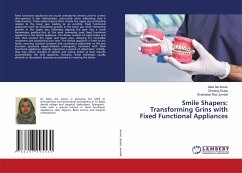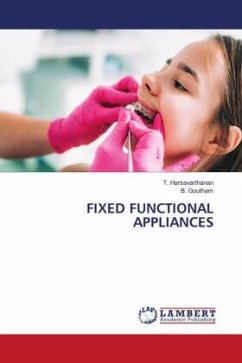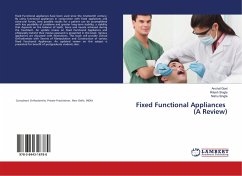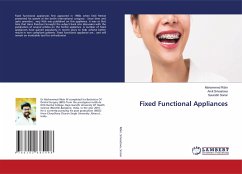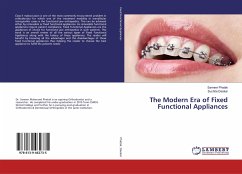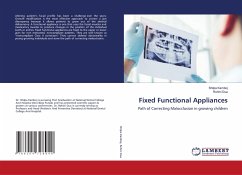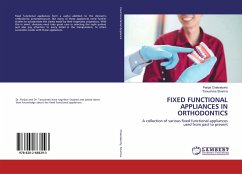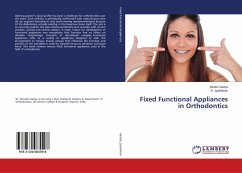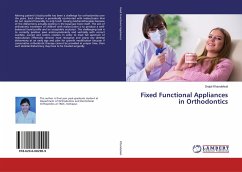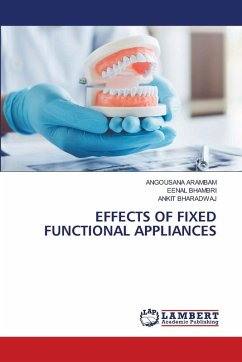
EFFECTS OF FIXED FUNCTIONAL APPLIANCES
Versandkostenfrei!
Versandfertig in 6-10 Tagen
45,99 €
inkl. MwSt.

PAYBACK Punkte
23 °P sammeln!
Functional orthopedic treatment aims to correct malocclusions and enhance orofacial harmony by modifying dental arch morphology and muscle function. Class II malocclusion, affecting nearly one-third of the population, is primarily associated with mandibular retrusion. Functional appliances, especially those promoting mandibular advancement, serve as a principal therapeutic modality in growing patients to stimulate skeletal correction during periods of active growth.Fixed functional appliances, such as the Forsus Fatigue Resistant Device, have gained prominence due to their ability to deliver c...
Functional orthopedic treatment aims to correct malocclusions and enhance orofacial harmony by modifying dental arch morphology and muscle function. Class II malocclusion, affecting nearly one-third of the population, is primarily associated with mandibular retrusion. Functional appliances, especially those promoting mandibular advancement, serve as a principal therapeutic modality in growing patients to stimulate skeletal correction during periods of active growth.Fixed functional appliances, such as the Forsus Fatigue Resistant Device, have gained prominence due to their ability to deliver continuous mandibular advancement forces without relying on patient compliance. These appliances initiate favorable dentoalveolar and skeletal changes when timed appropriately with the patient's growth phase.Skeletal effects such as mild mandibular growth stimulation and restricted maxillary progression, combined with dental movements like incisor proclination, contribute significantly to treatment success. Research demonstrates that FFAs improve key cephalometric parameters and offer clinical efficiency by integrating with fixed orthodontic appliances, reducing overall treatment.



